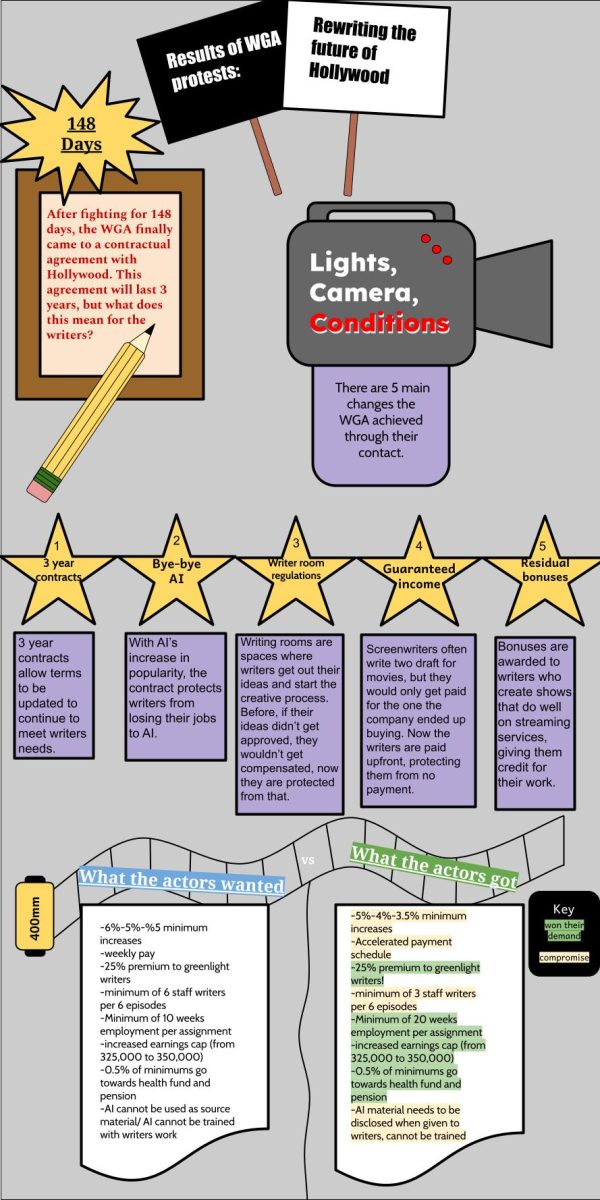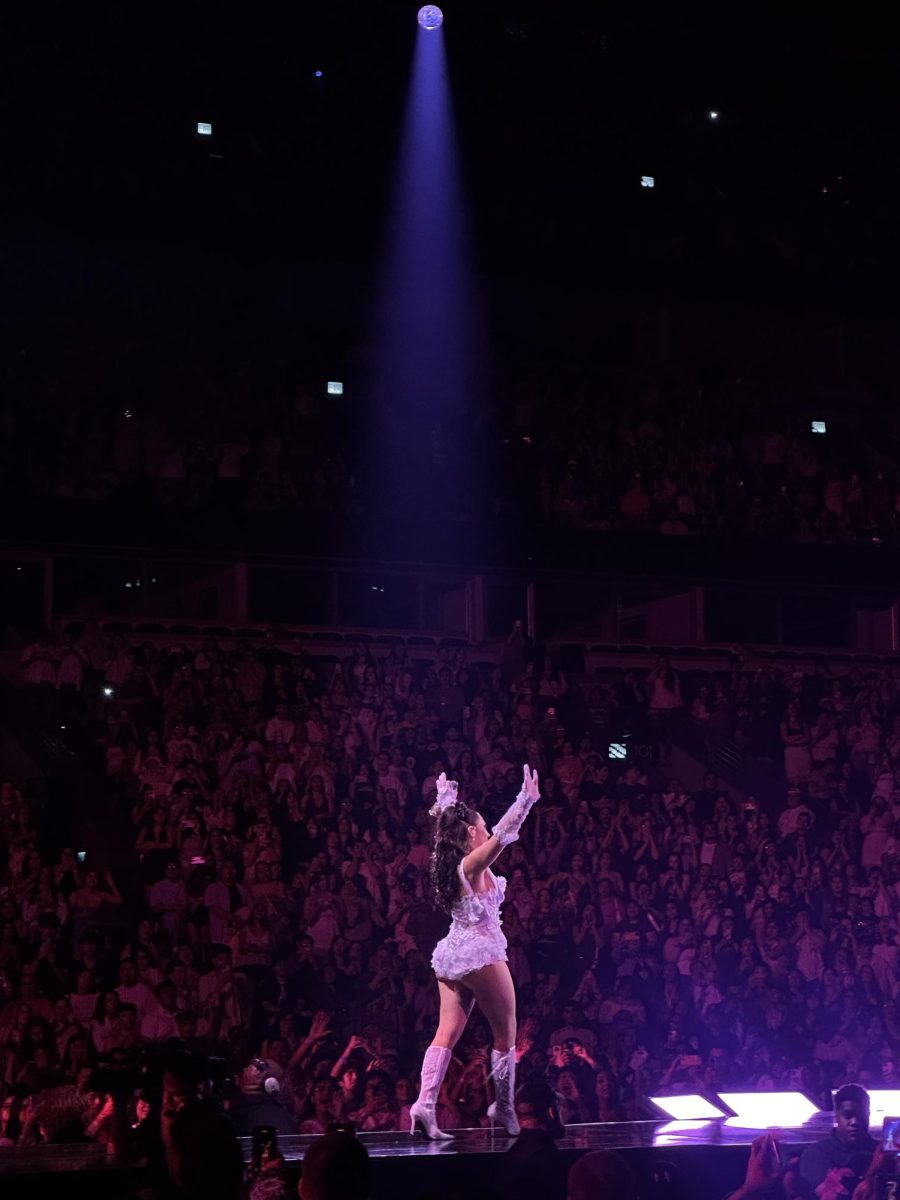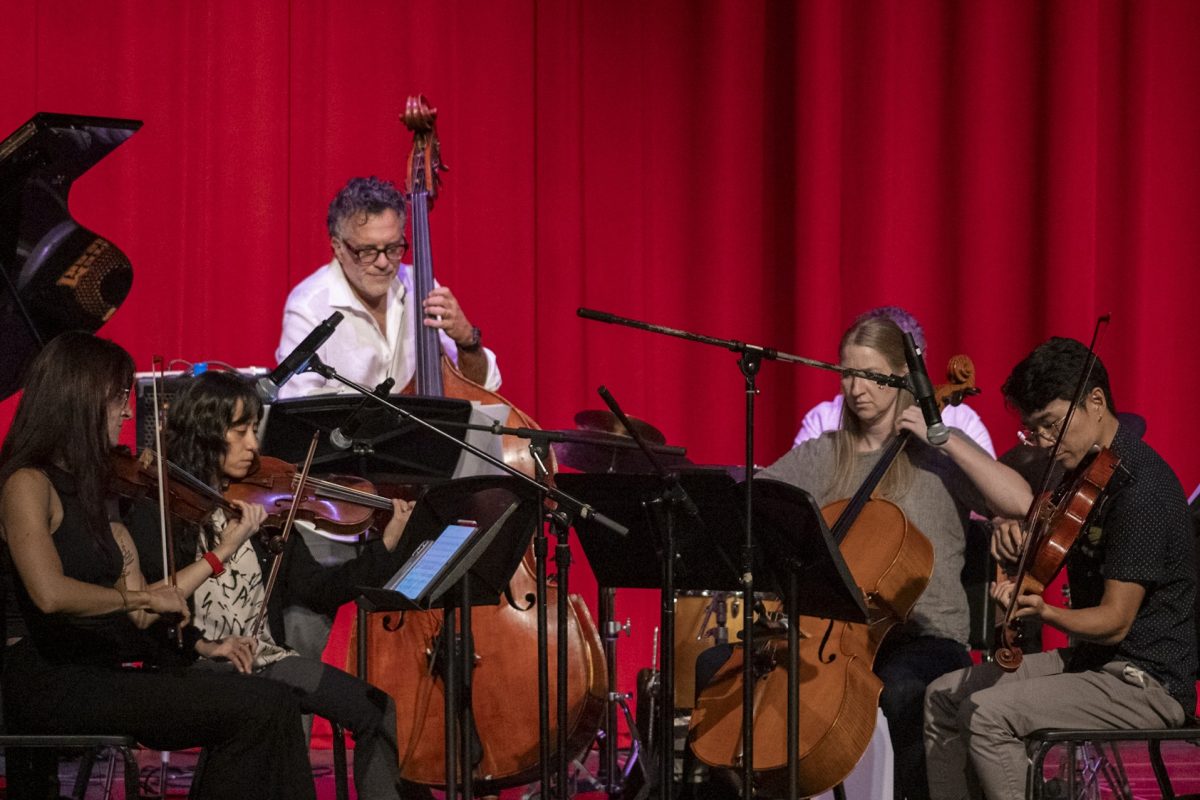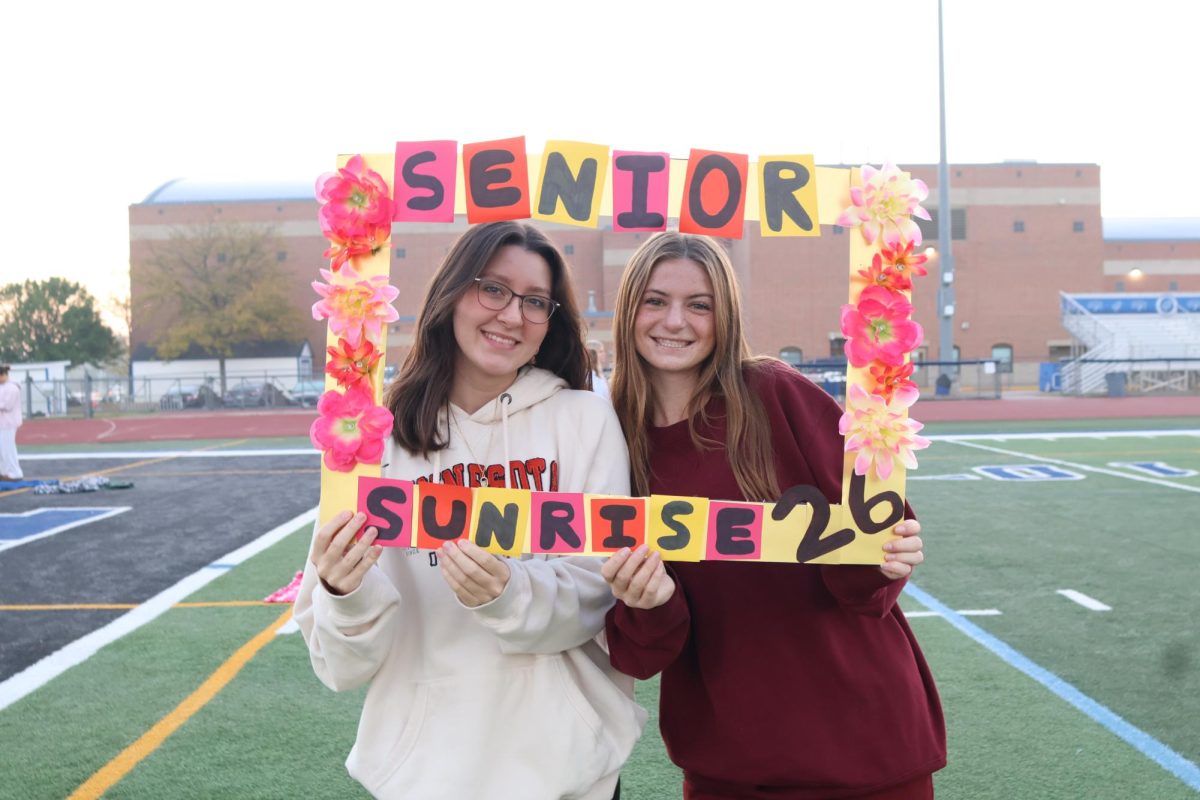This year’s historic Writers Guild of America strike finally came to a close Sept. 27, 2023. After 148 days of picketing and negotiating, Hollywood and the WGA formed a tentative agreement that then became officially ratified Oct. 9. Of the 8,525 WGA members that cast ballots, a whopping 99 percent voted in favor of the new three year contract. What does the agreement itself entail for Hollywood writers?
The Minimum Basic Agreement will last from Sept. 25, 2023 to May 1, 2026; about three years. The fact that the contract doesn’t last a long time actually favors the WGA, as the contract can get updated more often and keep up with advancing technology, inflation and other issues that can impact the industry.
When it comes to advancing technology in particular, the MBA heavily restricts the usage of artificial intelligence, a major point of contention that only began to pop up in the past few years. AI has become an increasingly apparent threat to artists of all kinds, for it could be a way to produce content without needing to hire actual workers. The new contract, however, makes it so AI can’t replace writers or their creations. And while writers can use it as a tool if their company allows it, they also can’t be forced to. Limiting and disclosing AI isn’t the only issue the MBA attempts to resolve.
Development and writers’ rooms act as a vital space for idea workshopping between TV show writers and writer-producers. Before the contract, a company could have writers start an entire project only to not greenlight it and therefore not pay them. Now, writers in development rooms are guaranteed a minimum time frame for which they will be employed and compensated, even if the piece doesn’t get approved in the end.
Also, post-greenlight writers’ rooms across all shows require a certain number of writers depending on how many episodes are being made. Six or fewer episodes requires at least three writers, for example. Although the WGA wanted a higher minimum number of staff than they were eventually given in the MBA, the compromise makes sure development and writers’ rooms can function properly.
As seen with pre-greenlight development rooms, an insured income has been at the forefront of the strike since the beginning. For instance, screenwriters almost always make two drafts for their movies, but companies before the MBA would only pay them for one. Two step deals are now covered in the new contract. A similar concept of withholding money occurred before flat deals were promised. If a project never became fully finished, the writers could very well have missed out on a huge amount of their pay since so much was received directly at the beginning and end. It has finally been enshrined in the MBA that particularly screenwriters can’t be mistreated under such a system anymore.
The WGA was even able to push money a step further by granting residuals to writers who create popular shows and movies on streaming services. More foreign subscribers and high viewership in the first 90 days of release of a project can give deserved credit to writers who brought so much popularity to the company. Many other common careers from salesmen to doctors give the occasional bonus for a job well done, so it only makes sense if writers experience the same.
The MBA reached between Hollywood and the WGA is crucial to the treatment of writers and expansive in all that it covers. However, there is still work to be done considering several demands made by the WGA weren’t fully met. Weekly minimums during post-production, which would protect writers from going without wages, were rejected altogether. The contract has laid the groundwork, meaning certain topics can be revisited and improved upon in years to come. It truly is a landmark victory. Considering the Screen Actors Guild and American Federation of Television and Radio Artists are currently still on strike, the MBA will hopefully inspire change for even more platforms.










